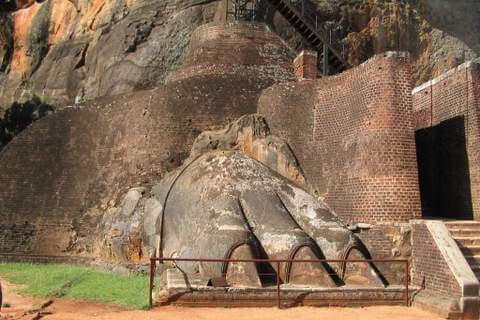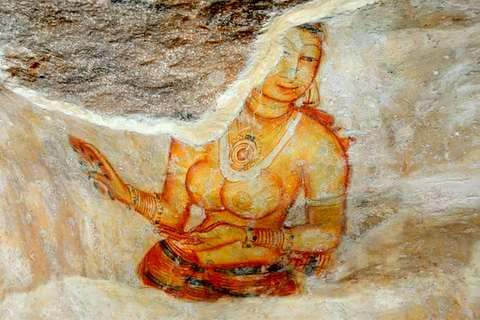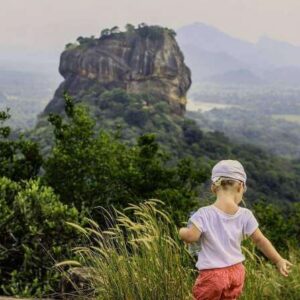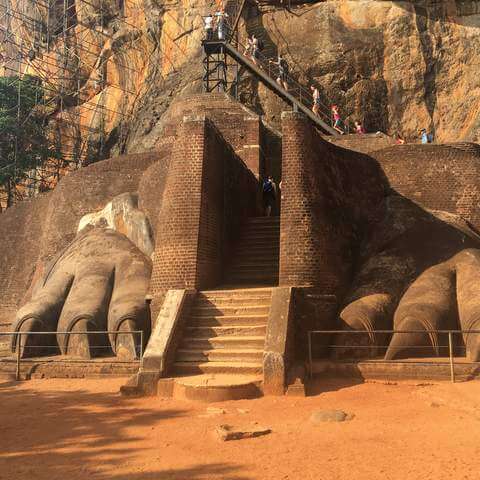WELCOME to
Sigiriya Lion Rock
The Most Famous Tourist Attraction
in Sri Lanka
SIGIRIYA SRI LANKA
The Most Famous Tourist Attraction in Sri Lanka
menu
AMAZING SIGIRIYA SRI LANKA
Sigiriya Lion Rock is an ancient rock fortress known for its massive column of rock that reaches nearly 200 meters high. The site dates back to the reign of King Kasyapa (477-495 AD), who chose this site as his new capital. He decorated the walls with frescoes, and built an impressive palace right on top of the rock column, accessible only through the mouth of an enormous carved lion.
How to get to sigiriya LION ROCK
There are multiple transportation options to travel Sigiriya Lion Rock from Colombo
For further information, please visit the provided links below
How to get to sigiriya
Note that taking the train is the slowest way. The closest railway station to Sigiriya is Habarana
Keep your belongings with you all the time as the tuk tuks are usually open vehicles
If the weather is good to you, the experience up in the air is absolutely magical
The journey is rather tiresome considering there’s no direct bus straight to Sigiriya.
It all really depends on your luck with the traffic. Highly recommended transport mode
SIGIRIYA WORLD HERITAGE
The ruins of the capital built by the parricidal King Kassapa (477–95) lie on the steep slopes and at the summit of a granite peak standing some 180m high (the ‘Lion’s Rock’, which dominates the jungle from all sides). A series of galleries and staircases emerging from the mouth of a gigantic lion constructed of bricks and plaster provide access to the site


8 BEST things to do in sigiriya
SIGIRIYA popular topics
- HOW TO HIKE PIDURANGALA AND SIGIRIYA ROCK IN ONE MORNING
- Visit SIgiriya Water Fountains
- travel guide to pidurangala rock
- travel guide to dambulla cave temple
- 19 best things to do in kandy
- 8 best highlights in Anuradhapura
- 6 best highlights in polonnaruwa
- 13 best highlights in mihintale
- minneriya national park
- wasgamuwa national park
Sigiriya LION Rock Sri lanka
Sigiriya is one of Sri Lanka’s most famous historical monuments. Residents call this ancient palace and fortress complex the eighth wonder of the world and it has significant archeology and attracts thousands of tourists annually. This is probably the most visited tourist destination in Sri Lanka.
The Sigiriya rocky plain, made of magma from an extinct volcano, is 200 meters higher than the surrounding forest. The exhibition surprises visitors with its unique harmony in nature and human imagination.
Thanks to this lion, the palace got Sigiriya. The word Sigiriya is derived from the word Sihagri, meaning Lion Rock. The western walls of Sigiriya are almost exclusively covered with frescoes, made during the Kasyapa period. Eighteen frescoes are still alive today.
The fresco depicts a naked woman and is seen as a picture of Kasyapa’s wife and concubine, or as a priest containing religious rites. Although the identity of the unknown woman is depicted in the mural, this unique ancient painting celebrates the beauty of women and has a remarkable historical impact.
One of the best features of Sigiriya is its mirrored walls. In the old days it was so refined that the king could see the reflection. The mirror walls are painted with inscriptions and poems written for Sigiriya’s guests.
The oldest inscription is from the ninth century. The inscription says that Sigiriya was a tourist destination more than a thousand years ago. Today it is strictly forbidden to paint walls.
Sigiriya LION Rock HIGHLIGHTS


1. Sigiriya MIrror wall
Just past the "Sigiriya Frescoes", you walk alongside what is known as the “Mirror Wall” — a wall polished so heavily that the king would have been able to see his reflection on the surface. You’ll see names and notes scribbled into the wall, some from as early as the 8th century, by visitors to Sigiriya Lions Rock.
One translated writing reads: “I am Budal [the writer's name]. Came with hundreds of people to see Sigiriya. Since all the others wrote poems, I did not!” Some things never change.
Further graffiti nowadays is strictly banned in order to protect these ancient writings.


2. Sigiriya Lion's Paw
At the northern end of the Sigiriya Lion Rock, a narrow pathway emerges on to the large platform from which the site derives its name – Sigiriya (from sinha-giri) means 'Lions Rock'. HCP Bell, the British archaeologist responsible for an enormous amount of archaeology in Sri Lanka, found the two enormous lion paws when excavating in 1898.
The final ascent to the top commenced with a stairway that led between the Sigiriya lion’s paws and into its mouth.
The 5th-century lion has since disappeared, apart from the first steps and the paws. Reaching the top means clambering up across a series of metal stairs, but you can still see the original grooves and steps cut into the Sigiriya Lion Rock.


3. Sigiriya Frescoes
After passing the gardens, you’ll approach a staircase which slowly winds its way up Sigiriya Lion Rock. One section of the staircase will allow you to view some of the ancient frescoes painted on the Sigiriya cave walls. These paintings are similar to those of the Anuradhapura period but have a distinct style in the way the lines and shadows are drawn.
To add to how impressive these ancient Sigiriya paintings are, it’s believe that the original paintings would have covered the entire face of Sigiriya Lions Rock — an area 140 meters long and 40 meters high.
Definitely take the extra few minutes to view the paintings and try to imagine what Sigiriya Rock would have looked like in all its painted glory thousands of years ago. As John Still suggested in 1907: “The whole face of the hill appears to have been a gigantic picture gallery . . . the largest picture in the world perhaps”


4. Sigiriya Boulder Gardens
As you enter Sigiriya Lions Rock, you’ll first walk through a series of beautiful gardens as you make your way to the towering Lion’s Rock ahead.
The water gardens, cave and boulder gardens, and terraces gardens at Sigiriya are among the oldest landscaped gardens in the world, so be sure to take some time to appreciate them!






















